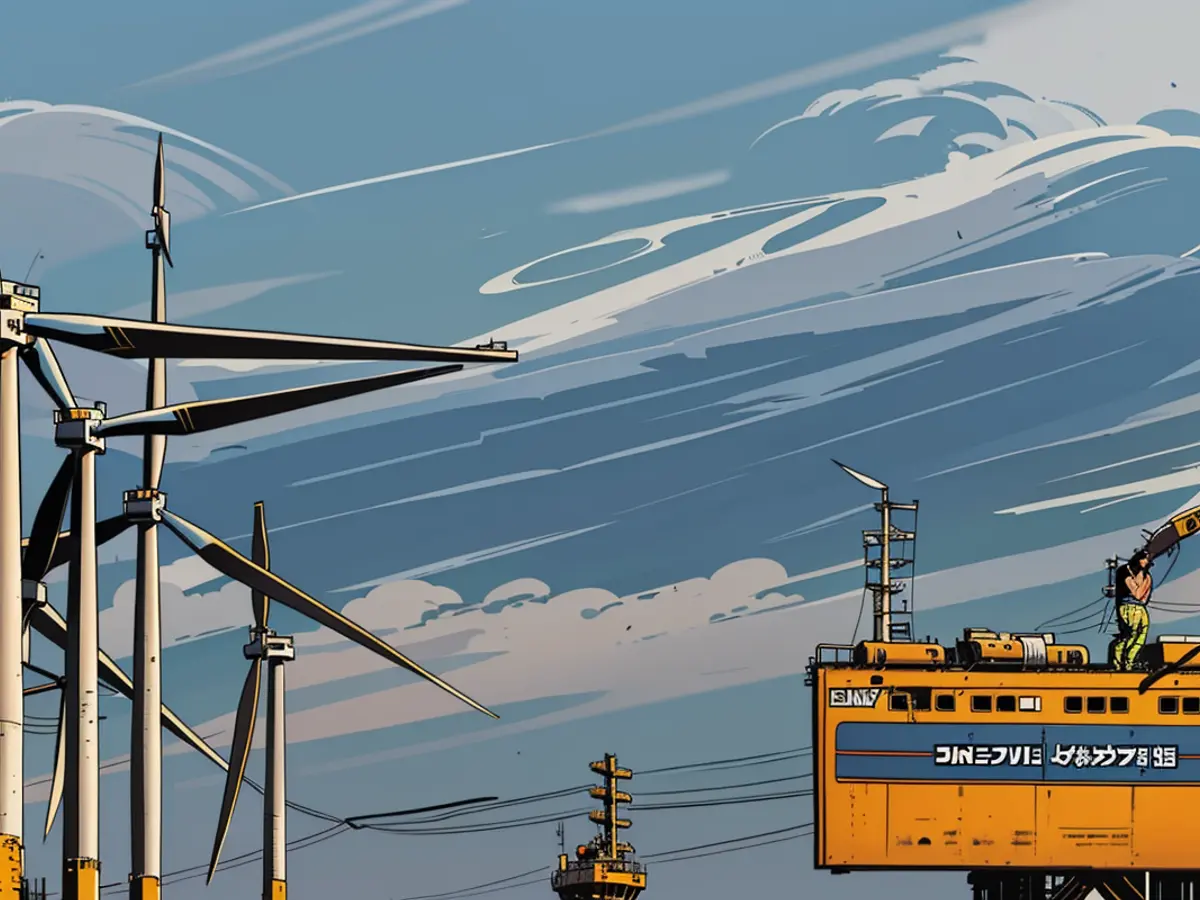Shipbuilding Association - Shipyards prepare construction of converter platforms
Multiple German shipyards have made preparations for the construction of converter platforms. They have completed concepts for the platforms and made necessary investments, stated Reinhard Luken, CEO of the German Shipbuilding and Maritime Technology Association (VSM), to the German Press Agency (dpa). Luken specifically named the shipyards Meyer, Lloyd, Thyssenkrupp Marine Systems, German Naval Yards, and Flensburger Schiffbau-Gesellschaft. "We have several yards that have done their homework," said Luken in Hamburg.
Construction of a converter platform began at the Meyer-Shipyard in Lower Saxony Papenburg in July. This was announced by the German transmission network operator and contractor Amprion. According to Amprion, this is the first such platform to be partially manufactured in Germany in many years.
A Billion-Dollar Business - Not for All
Converter platforms are large installations that stand in the sea near wind farms. Wind energy generators typically produce alternating current. However, for the lossless transmission of electricity from the sea to land over long distances, direct current is required. Converter platforms convert alternating current to direct current.
According to the German government's estimates from the previous year, it is expected that at least 33 new converter platforms will be needed for the German market by 2045. A converter platform costs around 2.5 billion Euros according to the Federal Ministry of Economics and Technology. In July, it was announced that the federal government and several states had set up a special guarantee program to address financing gaps for manufacturers.
"Converter platforms will be an important additional market," said Luken. However, he warned that the production of converter platforms would not replace missing orders in shipbuilding. Many suppliers from the maritime industry were not involved in the production of the platforms.
Shipyards had bad experiences
According to the VSM, German shipyards made poor experiences with the construction of then much smaller converter platforms in the early 2010s. Luken referred to cultural differences between the yards and the order givers, usually large energy companies. In Germany, the production of the platforms came to a standstill because the expansion of offshore installations had stalled. "There is a new dynamics now," said Luken. This was also due to Federal Economics Minister Robert Habeck (Greens), who initiated an exchange with the shipbuilding industry.
- Despite the challenges, the German Shipbuilding and Maritime Technology Association (VSM) is optimistic about the potential of converter platforms, with Reinhard Luken stating, "Converter platforms will be an important additional market."
- Luken acknowledged that the production of converter platforms will not replace missing orders in traditional shipbuilding but emphasized their significant role in the energy transition.
- The Meyer-Shipyard in Lower Saxony's Papenburg began construction of a converter platform in July, marking a significant milestone for the German market, as announced by Amprion GmbH.
- The German transmission network operator Amprion reports that this will be the first such platform to be partially manufactured in Germany in many years, contributing to the country's renewable energy goals.
- ThyssenKrupp, one of the listed shipyards, is likely to play a significant role in the construction of converter platforms, given its prominence in German shipbuilding and engineering.
- The production of converter platforms requires collaboration between various stakeholders, including energy companies and shipbuilding firms, to ensure successful completion of projects.
- The inability of German shipyards to effectively collaborate and complete converter platform projects in the early 2010s led to stalled production as a result of cultural differences and challenges with large energy companies.
- However, since then, there has been a shift in dynamics, with renewed interest and cooperation between the shipbuilding industry and the government, thanks in part to Federal Economics Minister Robert Habeck's initiatives and collaboration efforts.








